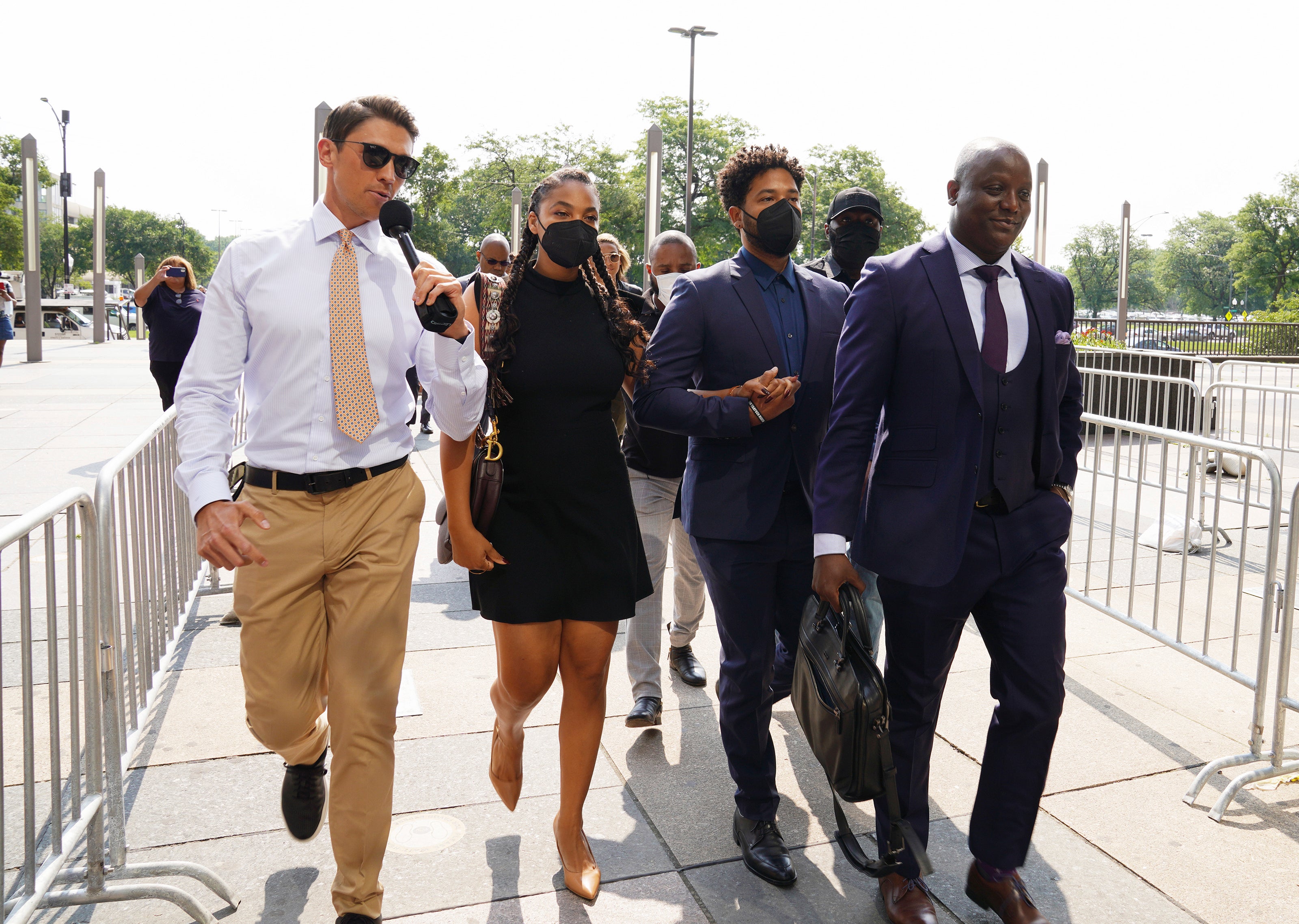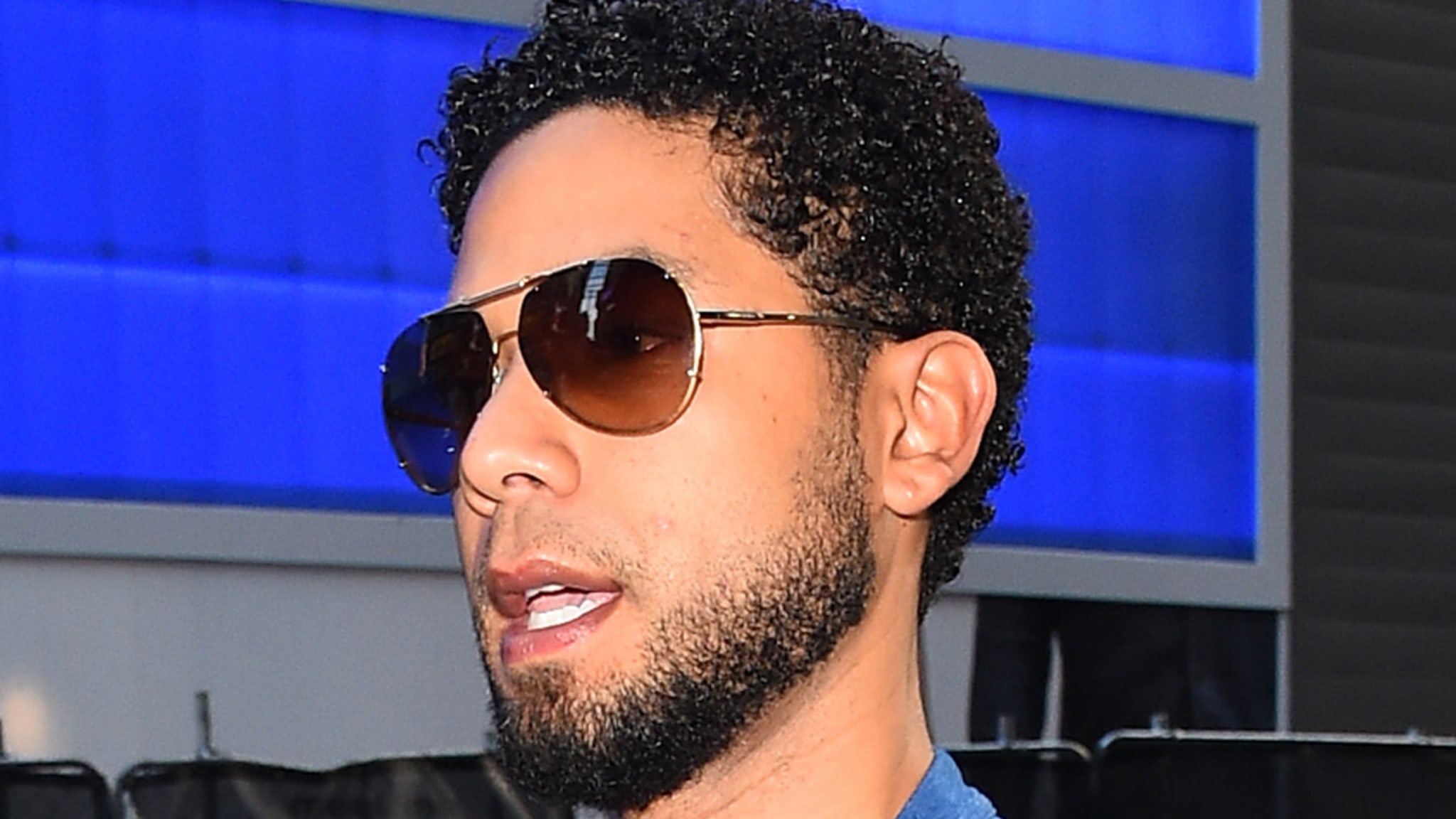Dave Chappelle and Jussie Smollett have both become household names in their respective fields, but their paths crossed in a way that sparked widespread debate and discussion. While Dave Chappelle is celebrated as one of the most influential comedians of our time, Jussie Smollett's career took a dramatic turn following a highly publicized controversy. Together, their stories highlight the complexities of fame, race, and accountability in modern society. In this article, we will explore their backgrounds, the controversy that linked them, and the broader cultural implications of their public narratives.
Dave Chappelle, a legendary comedian known for his sharp wit and unapologetic commentary, has consistently pushed boundaries in the entertainment industry. His work often addresses sensitive topics such as race, politics, and social justice, making him a polarizing yet respected figure. On the other hand, Jussie Smollett, an actor and singer, gained fame through his role in the hit TV series *Empire*. However, his career was overshadowed by allegations of staging a hate crime, which led to intense media scrutiny and public backlash.
The intersection of their stories began when Dave Chappelle addressed the Jussie Smollett controversy in his Netflix special *Sticks & Stones*. Chappelle's comedic take on the incident ignited conversations about accountability, privilege, and the role of public figures in shaping societal narratives. This article will delve into their individual journeys, analyze the controversy, and examine how their actions have influenced public discourse.
Read also:Does Jey Uso Have Kids Everything You Need To Know
Table of Contents
- Biography of Dave Chappelle
- Biography of Jussie Smollett
- The Jussie Smollett Controversy
- Dave Chappelle's Commentary on the Incident
- Cultural Impact of the Controversy
- Public Reaction and Media Coverage
- Lessons Learned from the Incident
- The Importance of Trustworthiness in Public Figures
- Broader Implications for Race and Accountability
- Conclusion
Biography of Dave Chappelle
Dave Chappelle, born on August 24, 1973, in Washington, D.C., is widely regarded as one of the greatest comedians of all time. His career spans decades, during which he has consistently challenged societal norms through his stand-up comedy and television work. Chappelle's groundbreaking show, *Chappelle's Show*, aired on Comedy Central from 2003 to 2006 and became a cultural phenomenon. Known for its satirical sketches and bold commentary on race, politics, and pop culture, the show remains a classic in the comedy genre.
Chappelle's decision to walk away from *Chappelle's Show* during its peak was a defining moment in his career. He cited creative differences and the pressures of fame as reasons for his departure. This bold move demonstrated his commitment to artistic integrity and personal well-being. In recent years, Chappelle has released several critically acclaimed Netflix specials, including *Sticks & Stones* and *The Closer*, which have further solidified his status as a thought-provoking entertainer.
Personal Data and Biodata of Dave Chappelle
| Full Name | David Khari Webber Chappelle |
|---|---|
| Date of Birth | August 24, 1973 |
| Place of Birth | Washington, D.C., USA |
| Occupation | Comedian, Actor, Writer, Producer |
| Notable Works | Chappelle's Show, Sticks & Stones, The Closer |
Biography of Jussie Smollett
Jussie Smollett, born on June 21, 1982, in Santa Rosa, California, rose to fame as an actor and singer. He gained widespread recognition for his role as Jamal Lyon in the Fox drama series *Empire*, which aired from 2015 to 2020. Smollett's portrayal of a gay musician navigating personal and professional challenges resonated with audiences, making him a prominent figure in the entertainment industry.
However, Smollett's career took a dramatic turn in January 2019 when he reported being the victim of a hate crime in Chicago. According to Smollett, he was attacked by two men who shouted racial and homophobic slurs, poured bleach on him, and placed a noose around his neck. The incident sparked outrage and solidarity, but subsequent investigations revealed inconsistencies in his account, leading to allegations that he had staged the attack.
Personal Data and Biodata of Jussie Smollett
| Full Name | Jussie-Born Smollett |
|---|---|
| Date of Birth | June 21, 1982 |
| Place of Birth | Santa Rosa, California, USA |
| Occupation | Actor, Singer, Songwriter |
| Notable Works | Empire, Alien: Covenant, B-Boy Blues |
The Jussie Smollett Controversy
The Jussie Smollett controversy began on January 29, 2019, when he reported being the victim of a hate crime in Chicago. Smollett claimed that two men attacked him in the early hours of the morning, shouting racial and homophobic slurs, pouring bleach on him, and placing a noose around his neck. The incident quickly gained national attention, with celebrities, politicians, and advocacy groups expressing support for Smollett and condemning the alleged attack.
However, doubts about the authenticity of Smollett's account emerged when Chicago police launched an investigation. Surveillance footage and witness testimonies revealed inconsistencies in Smollett's story. Investigators eventually concluded that Smollett had orchestrated the attack, hiring two acquaintances to stage the incident in an attempt to gain publicity and sympathy.
Read also:Kat Movie 18 A Comprehensive Guide To Understanding And Navigating The Controversy
Legal Consequences
Following the investigation, Jussie Smollett was charged with disorderly conduct for filing a false police report. He faced significant backlash from the public and the entertainment industry, with many criticizing him for allegedly exploiting the issue of hate crimes for personal gain. Although the charges were initially dropped, Smollett was later indicted again, and the legal proceedings against him remain ongoing.
Dave Chappelle's Commentary on the Incident
In his Netflix special *Sticks & Stones*, Dave Chappelle addressed the Jussie Smollett controversy, offering his perspective on the incident. Chappelle's commentary was both humorous and thought-provoking, as he questioned the motivations behind Smollett's actions and the broader implications of staging a hate crime. He emphasized the importance of honesty and accountability, particularly for public figures who have the power to influence societal narratives.
Chappelle's jokes about the incident sparked mixed reactions from audiences. While some praised his ability to tackle sensitive topics with humor and insight, others criticized him for perpetuating harmful stereotypes. Regardless of the polarizing responses, Chappelle's commentary highlighted the complexities of race, privilege, and trust in the public eye.
Cultural Impact of the Controversy
The Jussie Smollett controversy had a profound impact on public discourse surrounding hate crimes, race, and accountability. It raised important questions about the credibility of hate crime claims and the potential consequences of false accusations. Many advocacy groups expressed concern that incidents like Smollett's could undermine legitimate cases of hate crimes and erode public trust in victims' testimonies.
Additionally, the controversy highlighted the role of media in shaping public perception. The initial outpouring of support for Smollett demonstrated the power of media narratives, while the subsequent revelations about his alleged deception underscored the importance of critical thinking and fact-checking in the digital age.
Public Reaction and Media Coverage
The public reaction to the Jussie Smollett controversy was deeply divided. Supporters of Smollett argued that the intense scrutiny he faced was indicative of systemic racism and homophobia, while critics accused him of exploiting a serious issue for personal gain. The media played a significant role in amplifying the controversy, with headlines and opinion pieces dominating news cycles for weeks.
Journalists and commentators debated the implications of Smollett's alleged actions, with some emphasizing the need for accountability and others highlighting the broader societal issues at play. The incident also sparked discussions about the responsibilities of public figures and the potential consequences of their actions on marginalized communities.
Lessons Learned from the Incident
The Jussie Smollett controversy offers several important lessons about trust, accountability, and the complexities of navigating public life. One key takeaway is the importance of honesty and transparency, particularly for individuals in the public eye. False accusations can have far-reaching consequences, not only for the individuals involved but also for the broader communities affected by the issues at hand.
Another lesson is the need for critical thinking and skepticism when consuming media narratives. In an era of misinformation and sensationalism, it is crucial to seek out reliable sources and verify information before forming opinions. Finally, the incident underscores the importance of addressing systemic issues such as racism and homophobia in meaningful and constructive ways, rather than exploiting them for personal gain.
The Importance of Trustworthiness in Public Figures
Trustworthiness is a cornerstone of public life, particularly for individuals who hold positions of influence and authority. Public figures like Dave Chappelle and Jussie Smollett have a responsibility to act with integrity and accountability, as their actions can shape societal narratives and impact public trust. The Jussie Smollett controversy serves as a cautionary tale about the consequences of compromising trust and the importance of maintaining credibility in the public eye.
Dave Chappelle's commentary on the incident further underscores the value of honesty and authenticity. As a comedian known for his unfiltered and often controversial perspectives, Chappelle has built a reputation for speaking truth to power. His ability to address sensitive topics with humor and insight highlights the importance of engaging in meaningful dialogue about complex issues.
Broader Implications for Race and Accountability
The Jussie Smollett controversy has broader implications for discussions about race, accountability, and social justice. It highlights the challenges of addressing systemic issues such as racism and homophobia in a society where trust and credibility are often called into question. The incident also raises important questions about the role of public figures in advocating for marginalized communities and the potential consequences of their actions on these communities.
Ultimately, the controversy serves as a reminder of the need for empathy, understanding, and accountability in addressing societal issues. By fostering open and honest dialogue, we can work towards creating a more just and equitable society for all.
Conclusion
The stories of Dave Chappelle and Jussie Smollett offer valuable insights into the complexities of fame, race, and accountability in modern society. While Chappelle's unapologetic commentary on the Jussie Smollett controversy sparked important conversations about trust and integrity, Smollett's alleged actions highlighted the potential consequences of compromising credibility. Together, their narratives underscore the importance of honesty, transparency, and empathy in navigating public life.
We encourage readers to reflect on the lessons learned from this incident and consider how they can contribute to meaningful discussions about race, accountability, and social justice. Feel free to share your thoughts in the comments section below or explore other articles on our site for more insights into these critical issues.

